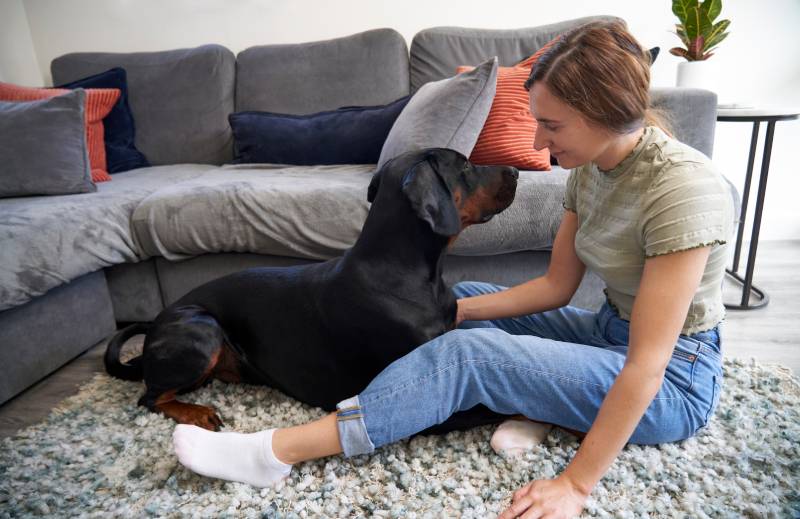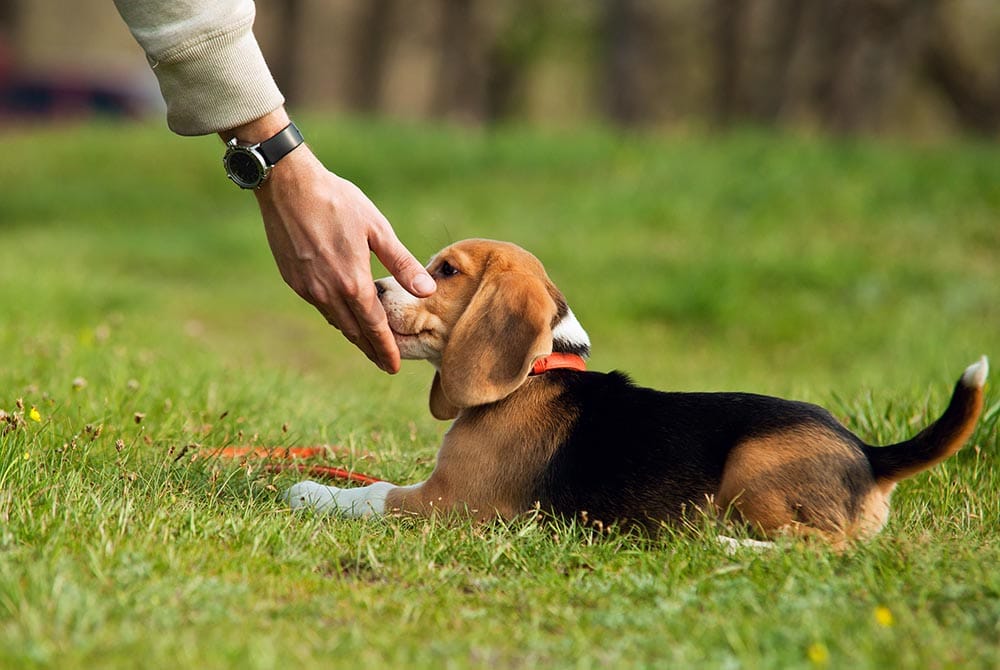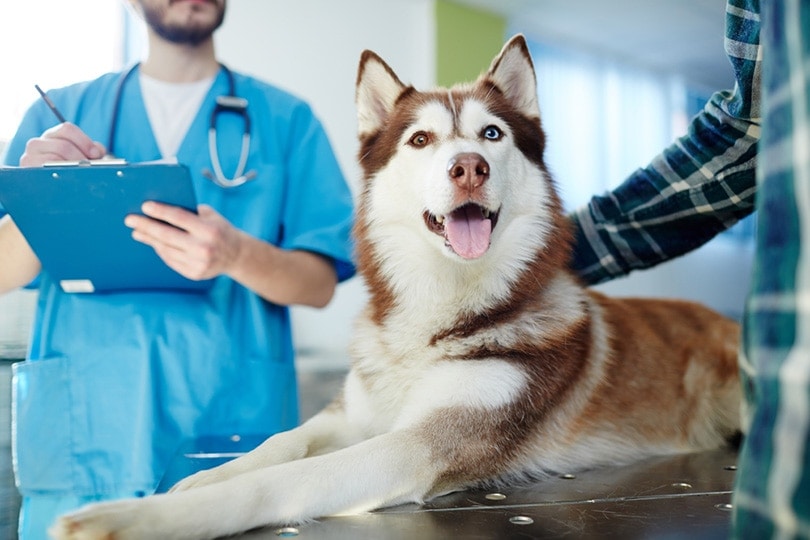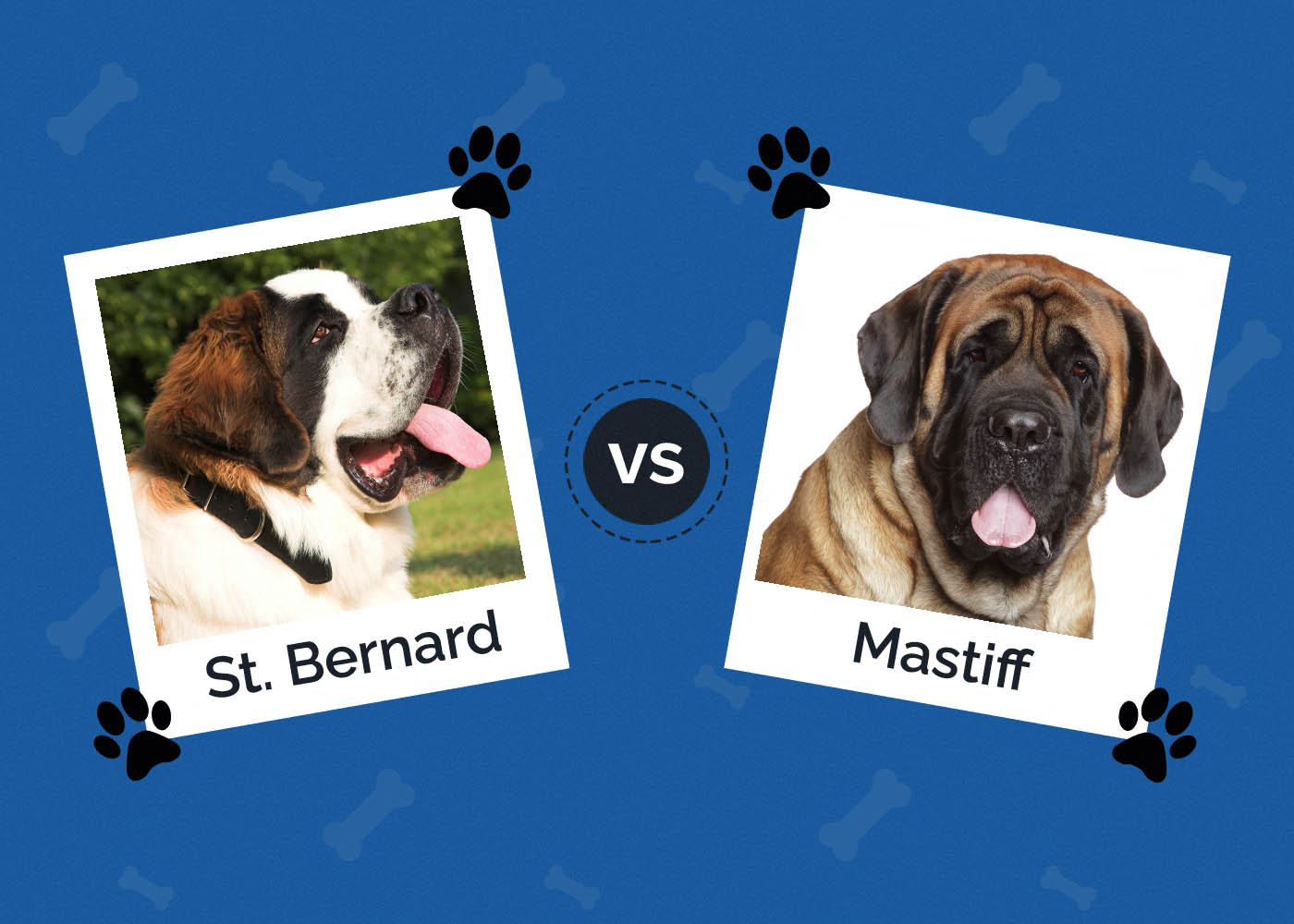Do Dogs Think About the Past? Vet-Approved Canine Memory Guide
Updated on

Click to Skip Ahead
As pet parents, we often find ourselves intrigued by the intricacies of our dog’s mental processes. We observe them dreaming, their legs twitching in sleep, seemingly lost in a world that we can only speculate about. Is it a squirrel chase that they are dreaming about? Or are they reminiscing about the joy of fetching a ball? Yet, amidst all this speculation, we often find ourselves wondering if dogs dwell in the past as humans do.
Research has repeatedly proven that dogs have a nuanced understanding of our words and emotions, much more profound than what we initially assumed. They respond to our commands, display empathy when we’re sad, and rejoice in our happiness. But the question that still lingers is whether these responses are based purely on present stimuli or if they stem from a memory reservoir where past experiences reside. Dogs may not think about their past in the way humans do, but their associative memories suggest that past experiences play a role in how they react to certain stimuli.
Can Dogs Remember Their Past?
The cognitive world of dogs has always been a realm of fascination. Recent studies have revealed dimensions of this world that we previously thought were exclusive to humans. A groundbreaking study conducted in Budapest, Hungary, unveiled dogs’ impressive observational skills. It turned out that our furry friends can mimic human behaviors and actions just by observing them. This finding suggests that dogs have associative memories, enabling them to remember people, places, or experiences based on specific associations.
For example, some dogs may seem uncomfortable around men wearing hats. This pretty interesting behavior could sadly be the product of a negative or harmful association with a hat-bearer in the past. Therefore, when your dog interacts with a person or environment and their behavior seems out of the ordinary, they might be recollecting something from their past.
So, while dogs may not think about their past in the way humans do, their associative memories and learned behaviors suggest that past experiences play a role in how they react to certain stimuli. In other words, they might not reminisce about the good old days, but they can recall past associations and learn from them.
From an evolutionary perspective, it would make sense for predators such as dogs to be able to recall past experiences. This would allow them to know where prey tends to gather, where the best dens are, where territorial threats are, and where sources of water are. Though they always use their other senses to figure this out (particularly their smell), they likely benefit from the ability to recall past experiences and encounters.

What’s the Science Behind Dogs Remembering?
The science of canine memory is intriguing. Unlike humans, who possess episodic memory that allows us to remember past events in context, dogs are thought to live more “in the moment.” Their memory is associative and helps them recall past experiences and memories through sight and smell.
This unique way of memory processing also explains why our furry friends get excited every time they see us, even if we have just stepped out for a minute. For our precious puppies, it’s less about the concept of time and more about the association they have with us. As they get older, recalling people and events from their puppyhood can become more challenging. However, research has shown that specific actions, behaviors, and traits can all trigger memories and recall past experiences in dogs.
While our understanding of dog memory is continually evolving, it’s safe to say that their memory works somewhat differently from ours. Despite these differences, dogs are adept at forming lasting memories and associations.
Can We Train Dogs to Remember Their Past?
Training a dog to remember specific past events is currently beyond our ability, but this doesn’t mean we can’t shape their behavior based on the things they learn and remember. The trick lies in understanding how their memory works and using that knowledge to teach them new things and reinforce desired behaviors.
When it comes to adult dog or puppy training, it’s extremely crucial to keep in mind that many studies have postulated that our dog’s short-term memory is limited to roughly 2 minutes. This means you need to have patience with your sweet pup and be consistent in your training techniques. While we may not fully understand the extent of a dog’s long-term memory, we do know that they can remember specific hand signals and certain words for a lifetime. Such insights can prove incredibly helpful when training a new pup.

Our Roles: How Humans Shape Dog Memories
As pet parents, we play an instrumental role in shaping our dogs’ memory landscapes. Dogs often associate us with food, fun, and comfort, which is why we’re often the center of their joyous greetings even after short absences.
However, our role doesn’t stop at being a source of joy. We also help our dogs navigate their world safely, providing them with experiences that form their perception and understanding. We train them, socialize them, and guide them, essentially shaping their associative memories. It’s in our hands to make these associations positive, thereby enhancing our dogs’ well-being and happiness.
Additional Tips for a Happy, Healthy, and Safe Pet
Ensuring the happiness, health, and safety of your dog requires a comprehensive approach. It involves several essential aspects that work together harmoniously. Regular exercise is a vital component that keeps their physical well-being in check, allowing them to thrive. Equally important is providing a balanced diet that fulfills their nutritional needs, supporting their overall health. Moreover, regular visits to the vet serve as a proactive measure to catch any potential health concerns before they escalate.
In addition to physical well-being, social interactions play a crucial role in maintaining a dog’s mental health. Allowing your furry friend to engage with other dogs and humans provides valuable opportunities for emotional balance and fulfillment. Furthermore, prioritizing their safety is paramount. Creating a secure environment, keeping harmful substances out of their reach, and never leaving them alone in potentially hazardous situations are all vital measures for their overall well-being. By considering these factors, you can help ensure that your beloved companion leads a happy and healthy life.

Conclusion
To wrap up, although dogs may not remember events in the same way humans do, their memory plays a significant role in shaping their behavior and learning patterns. As we delve deeper into the fascinating world of canine cognition, we uncover remarkable abilities that deepen our admiration for these faithful companions. By creating nurturing and caring environments for our beloved dogs, we can cultivate positive associations, encourage wholesome behaviors, and forge stronger bonds with our furry friends.
Featured Image Credit: Karen Laventure, Shutterstock













